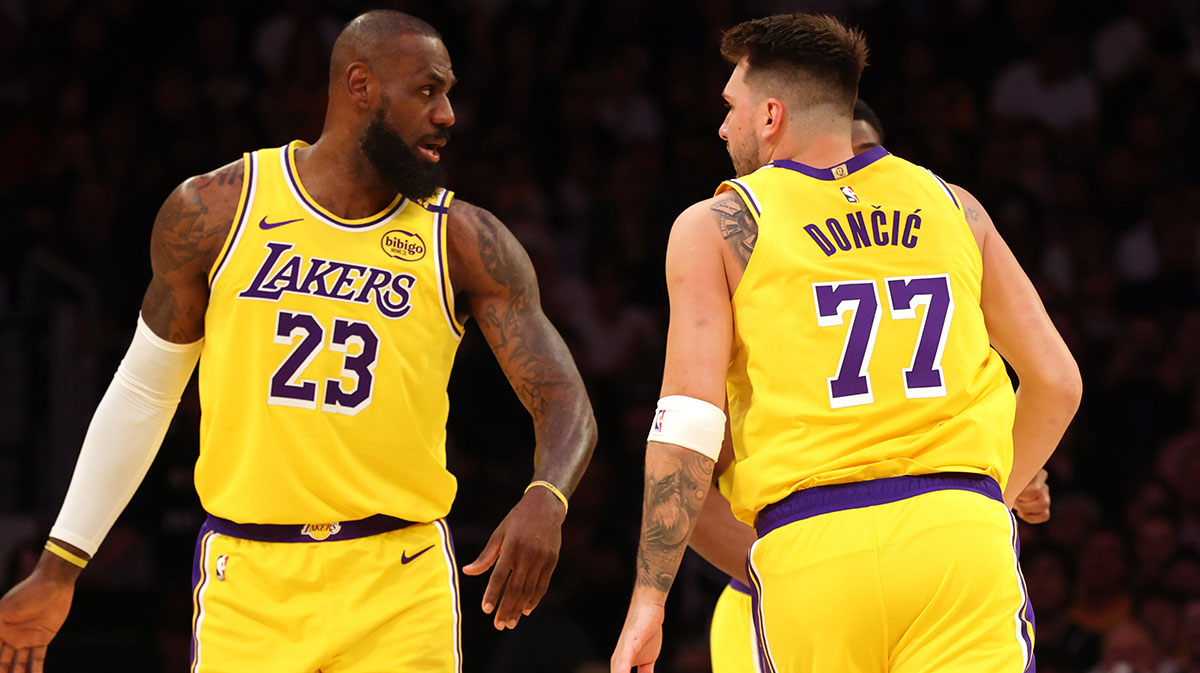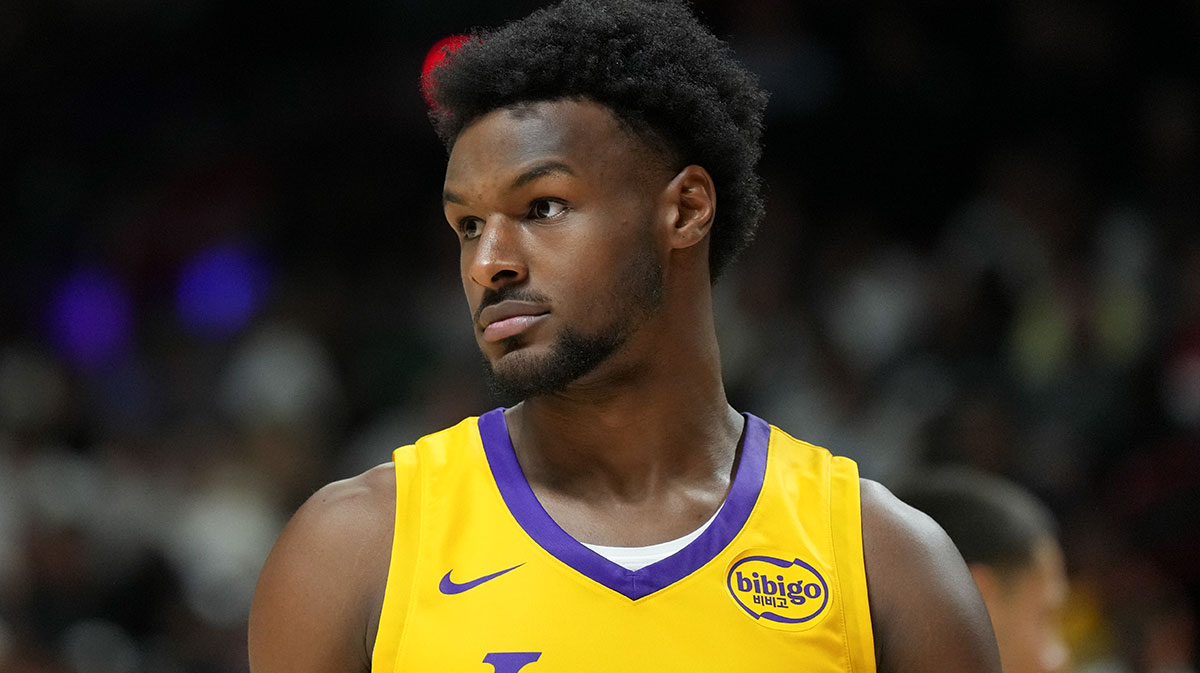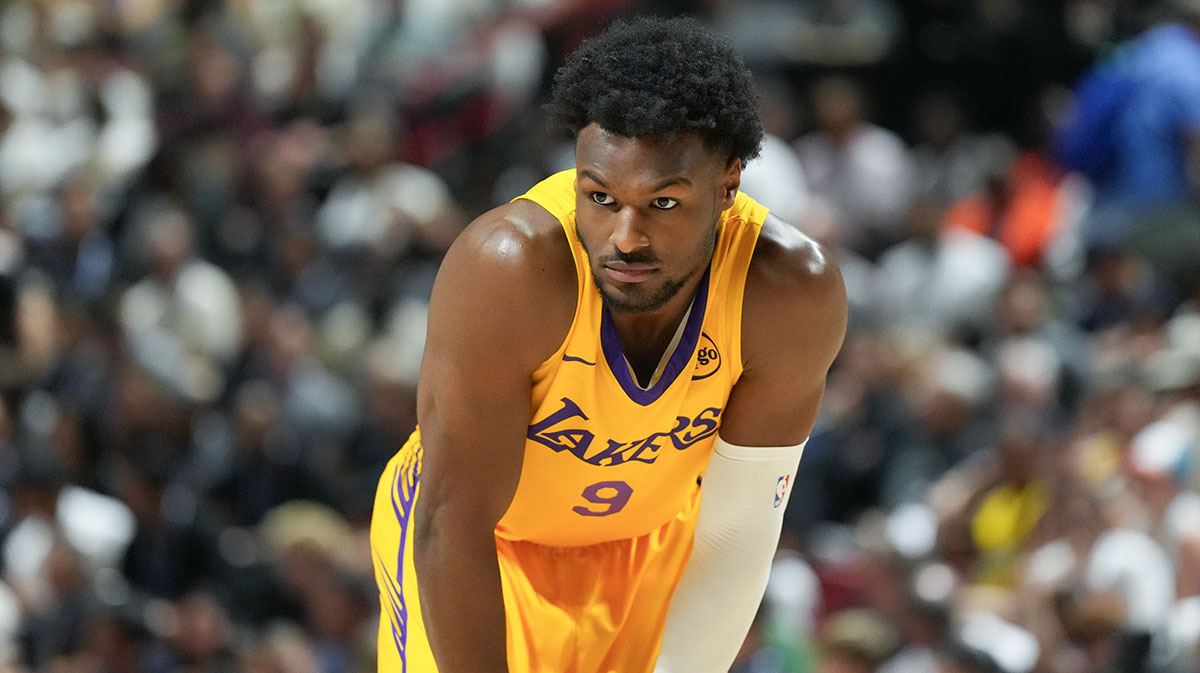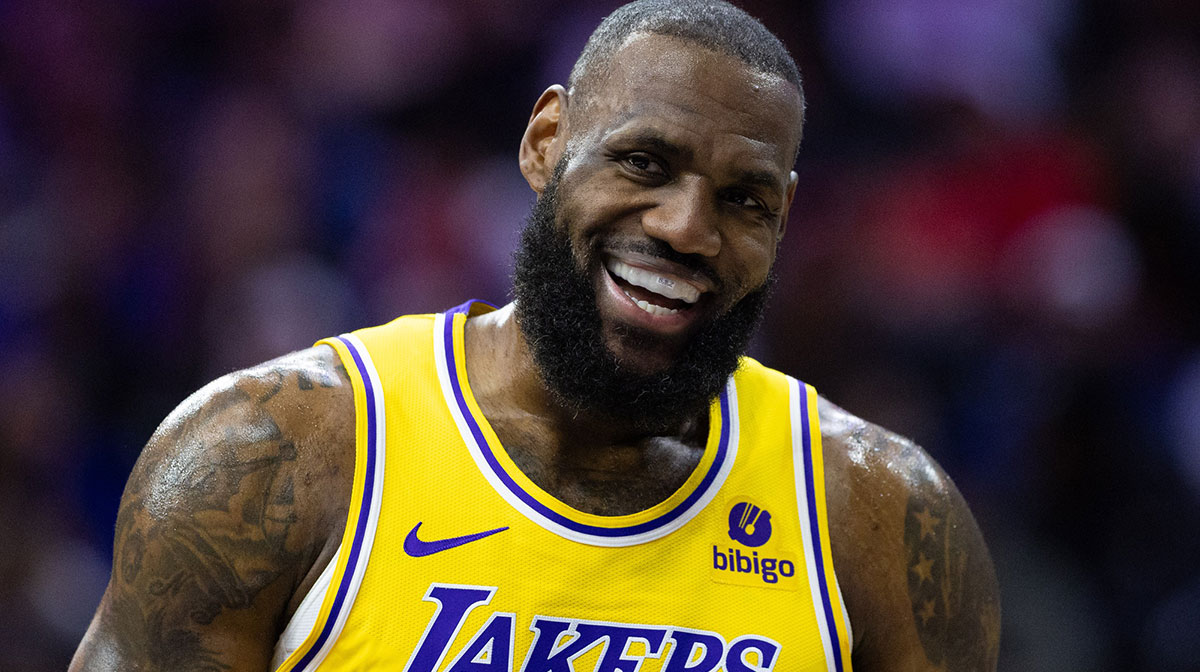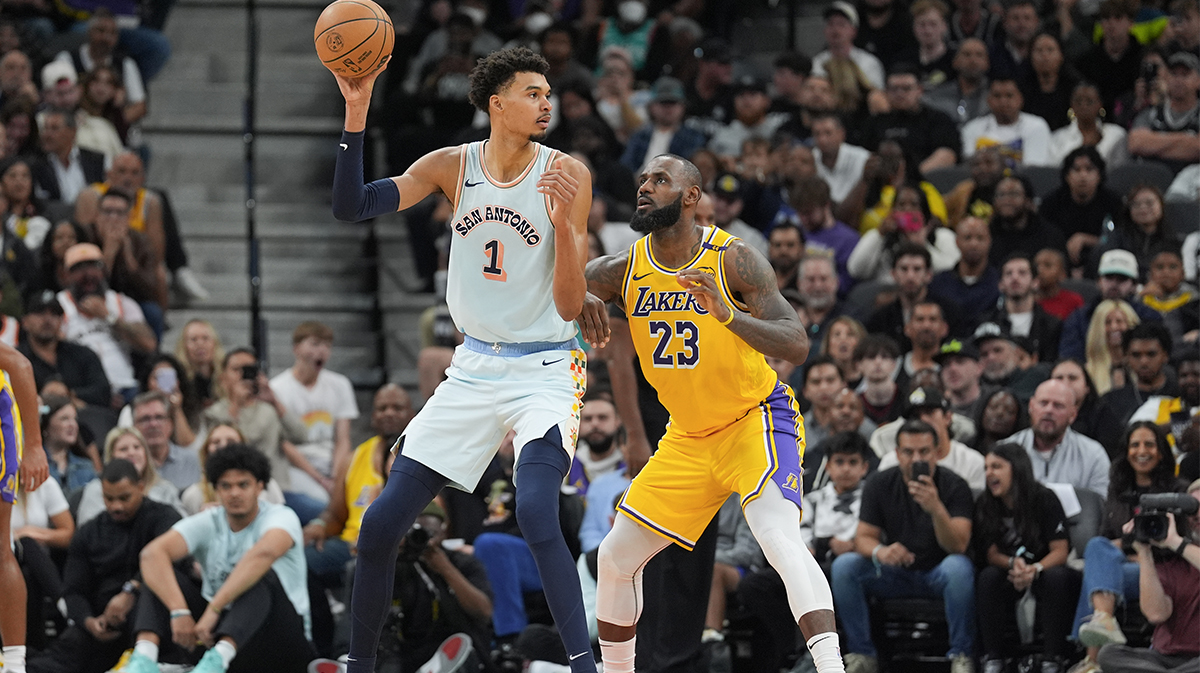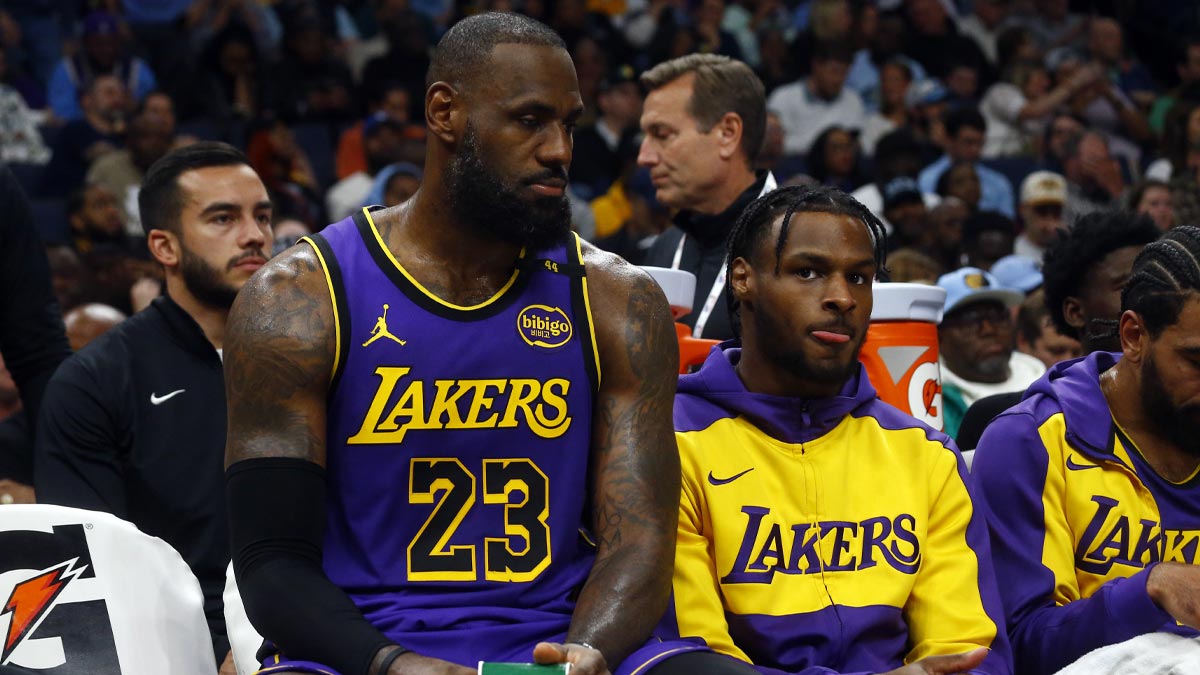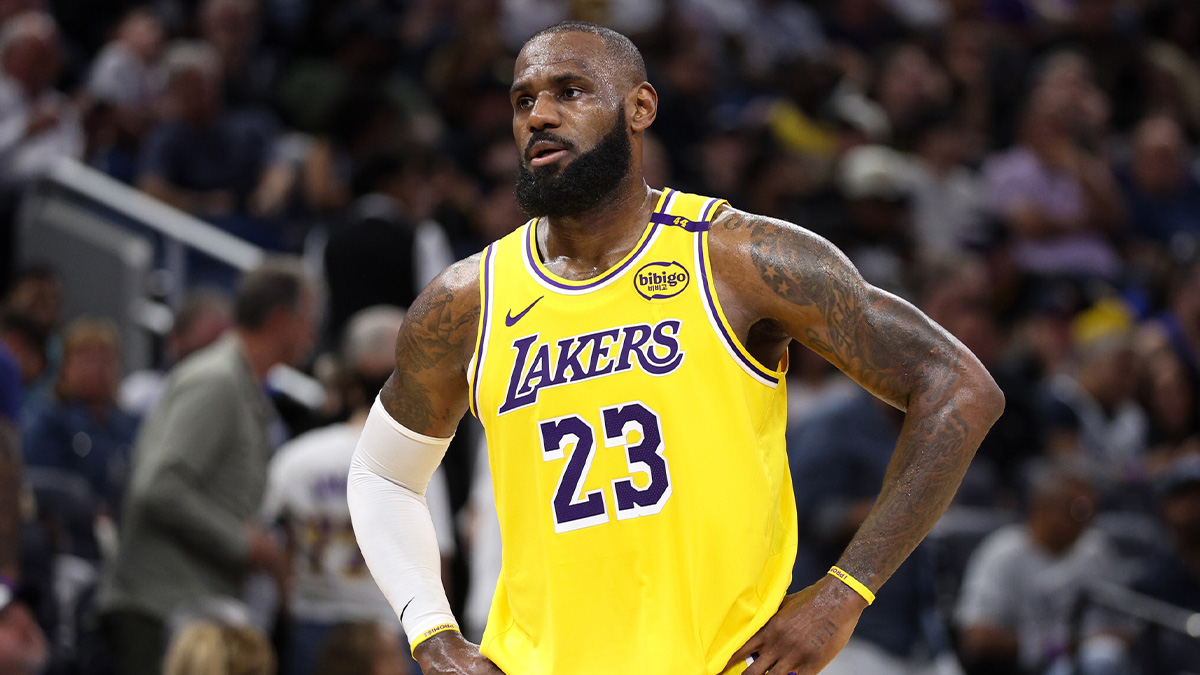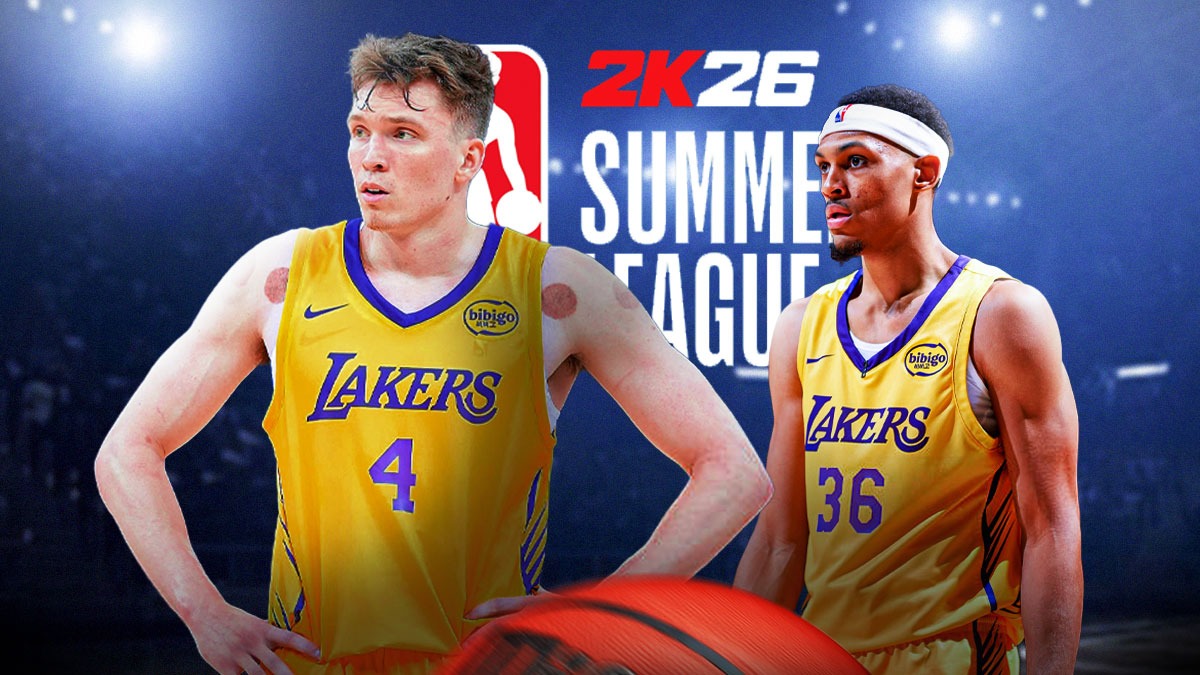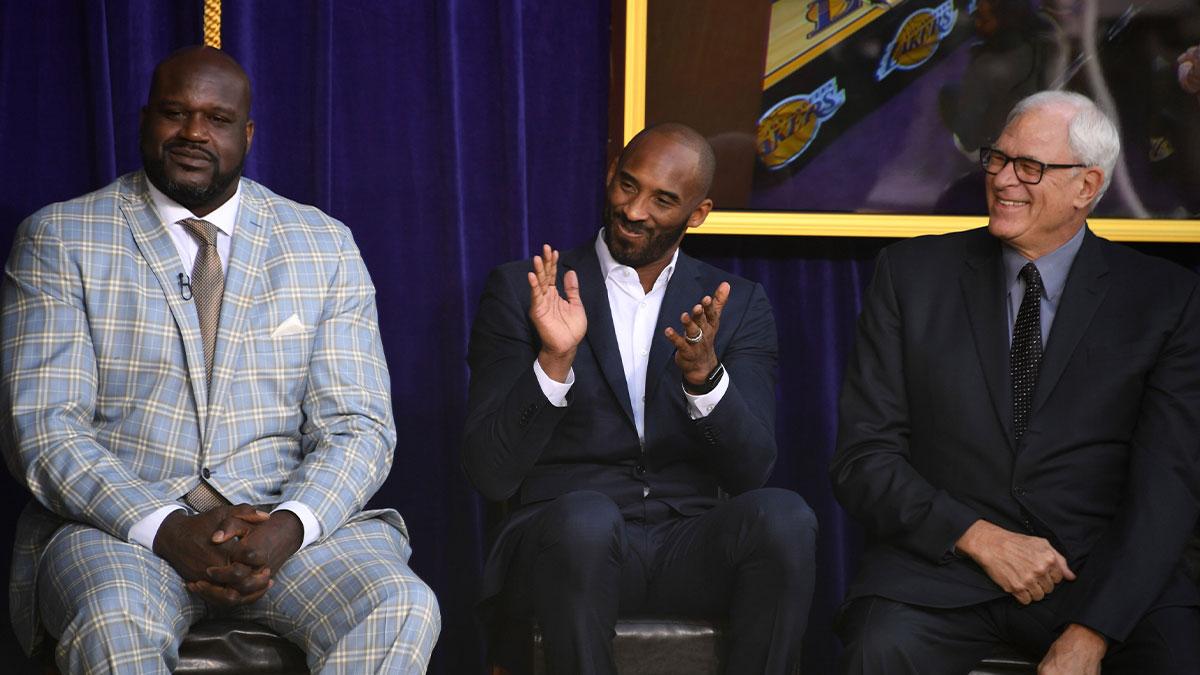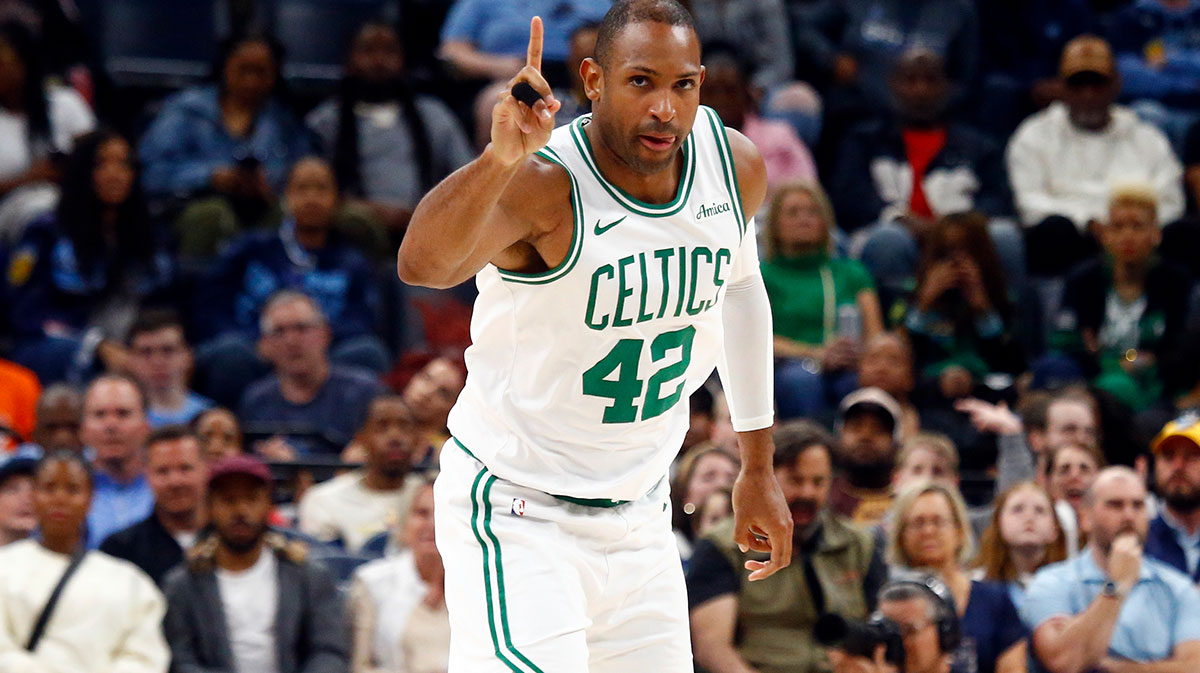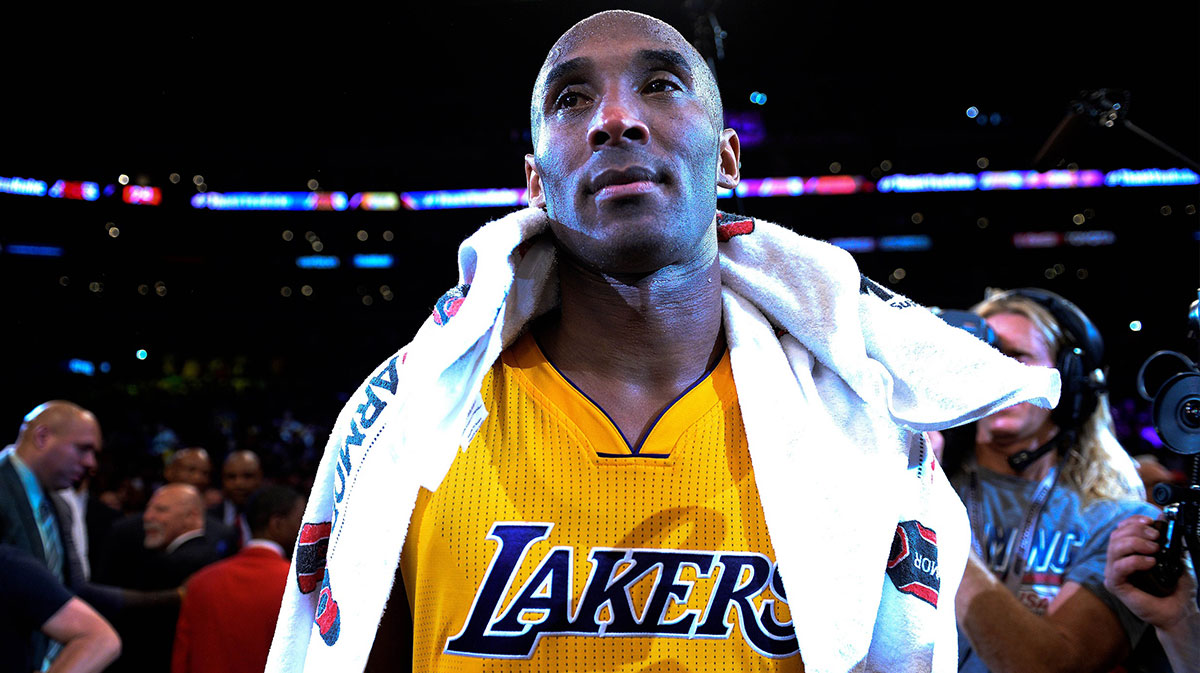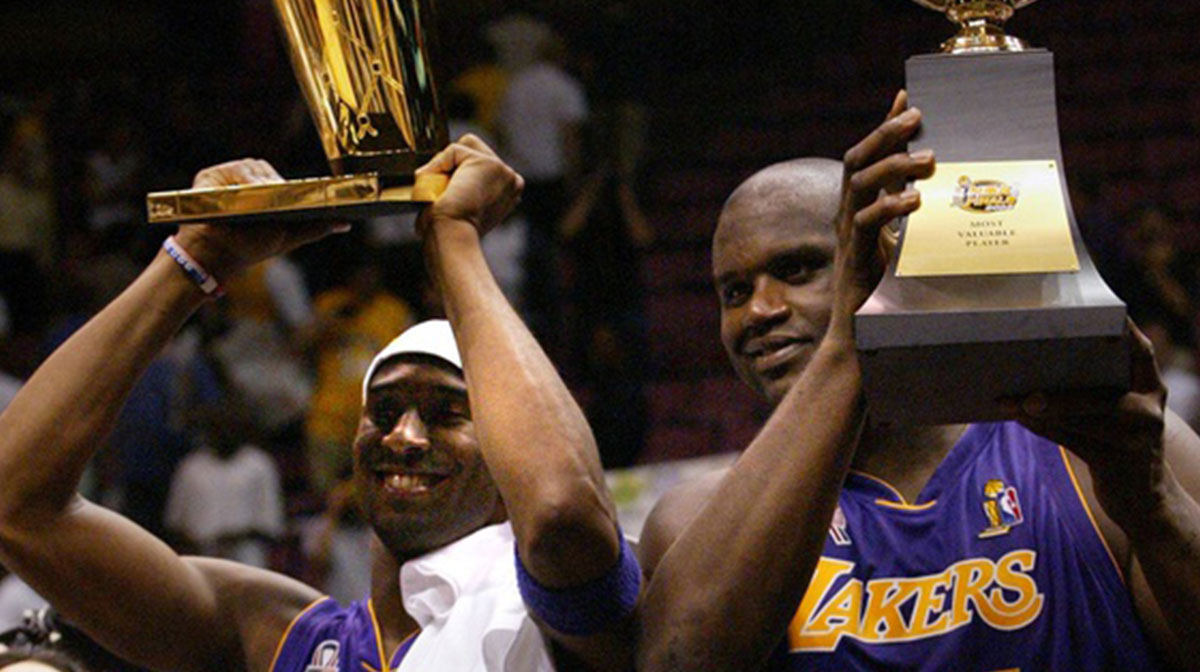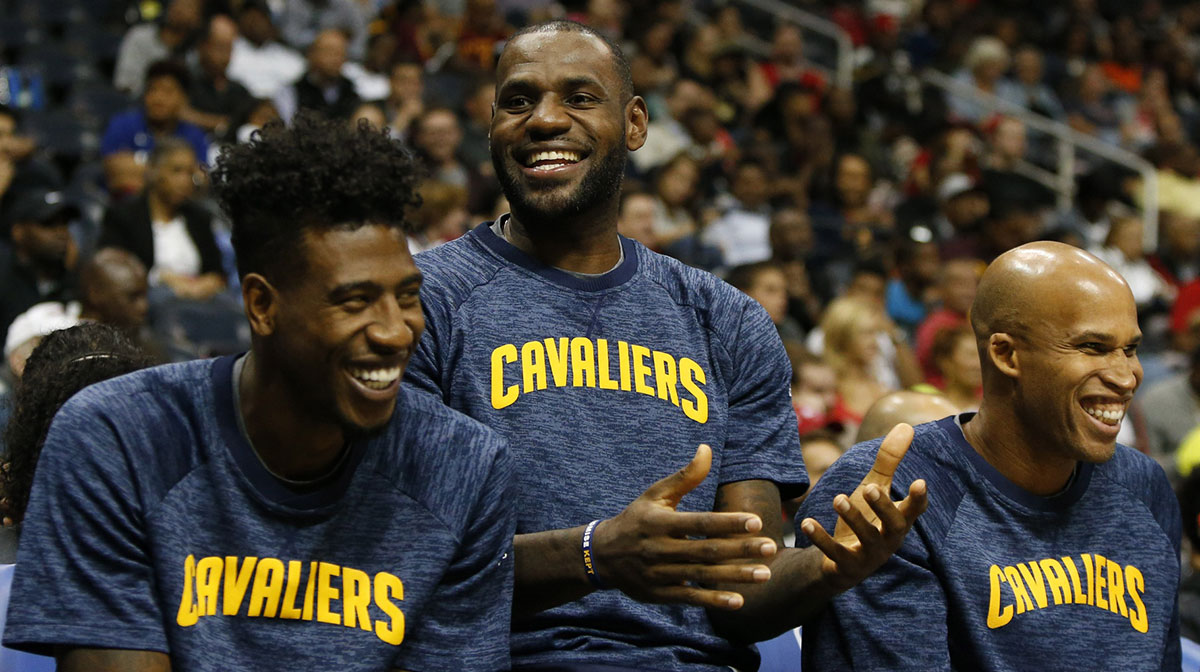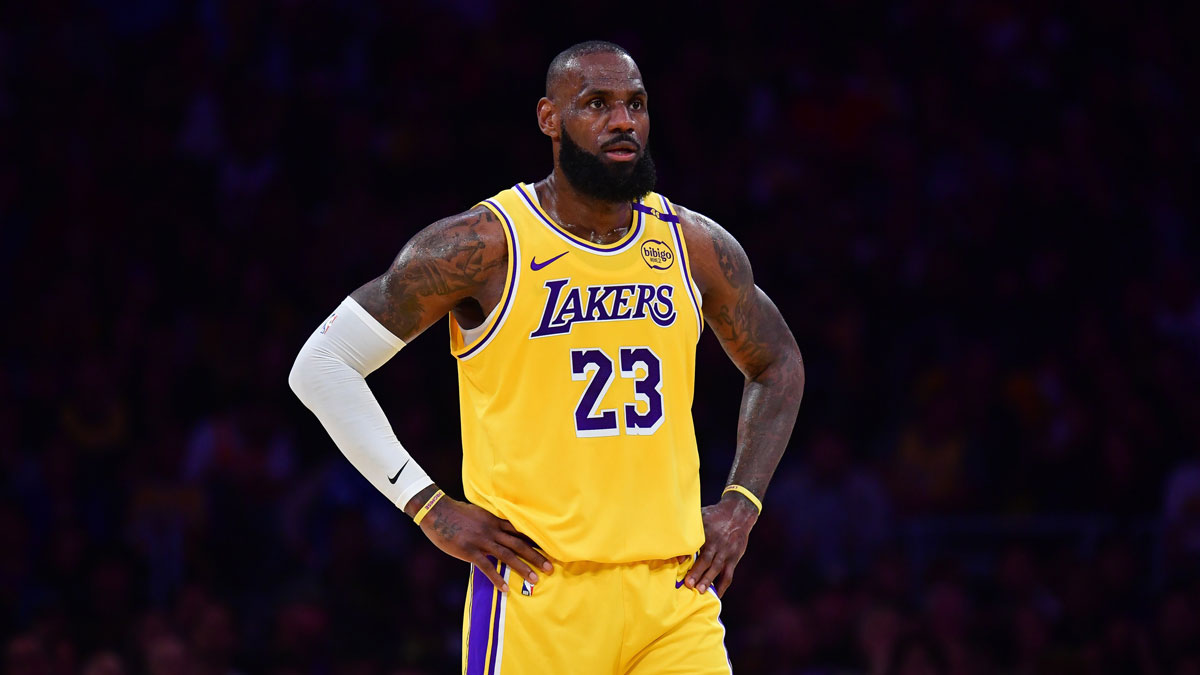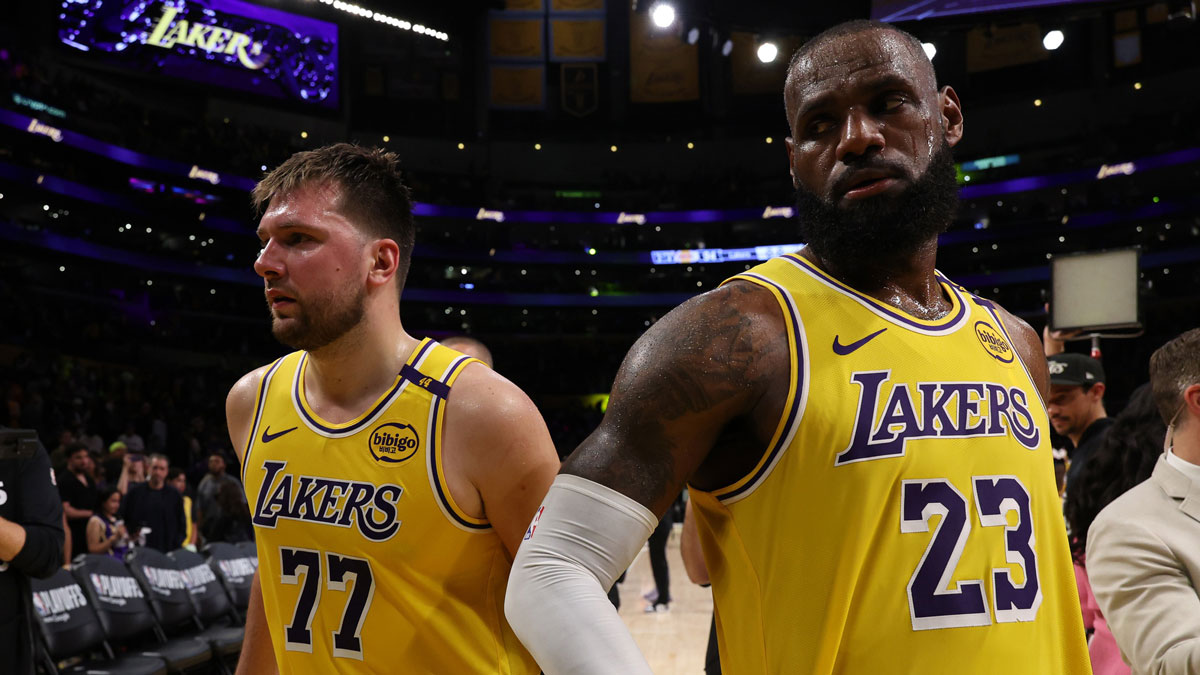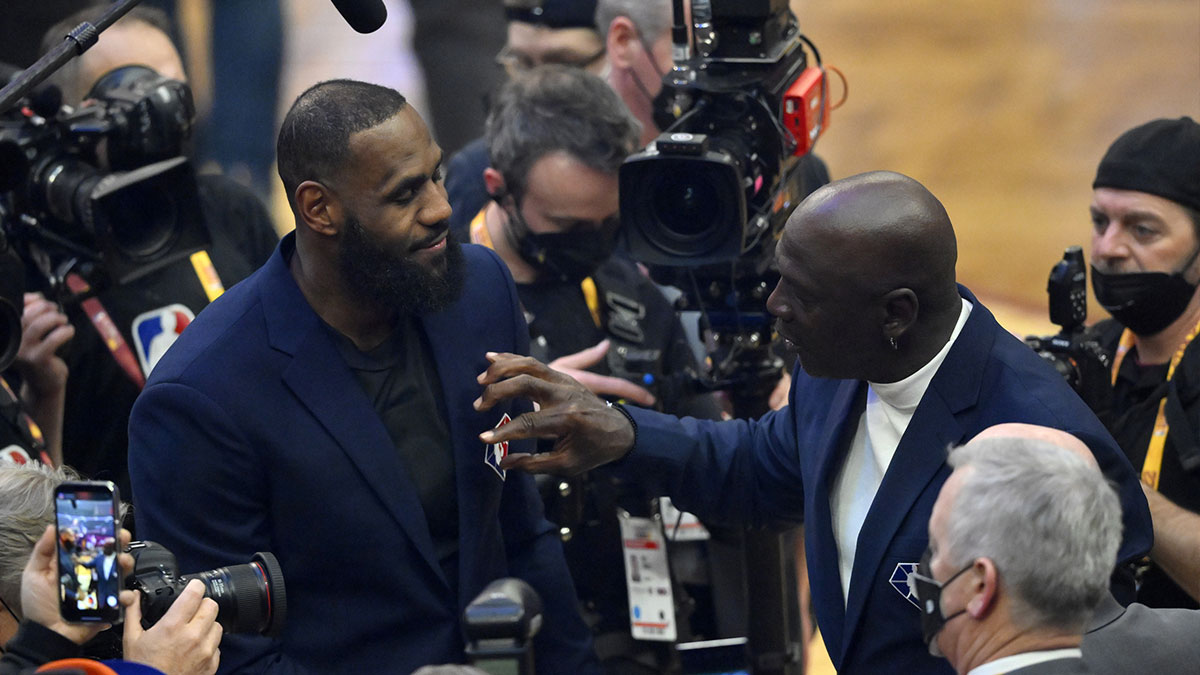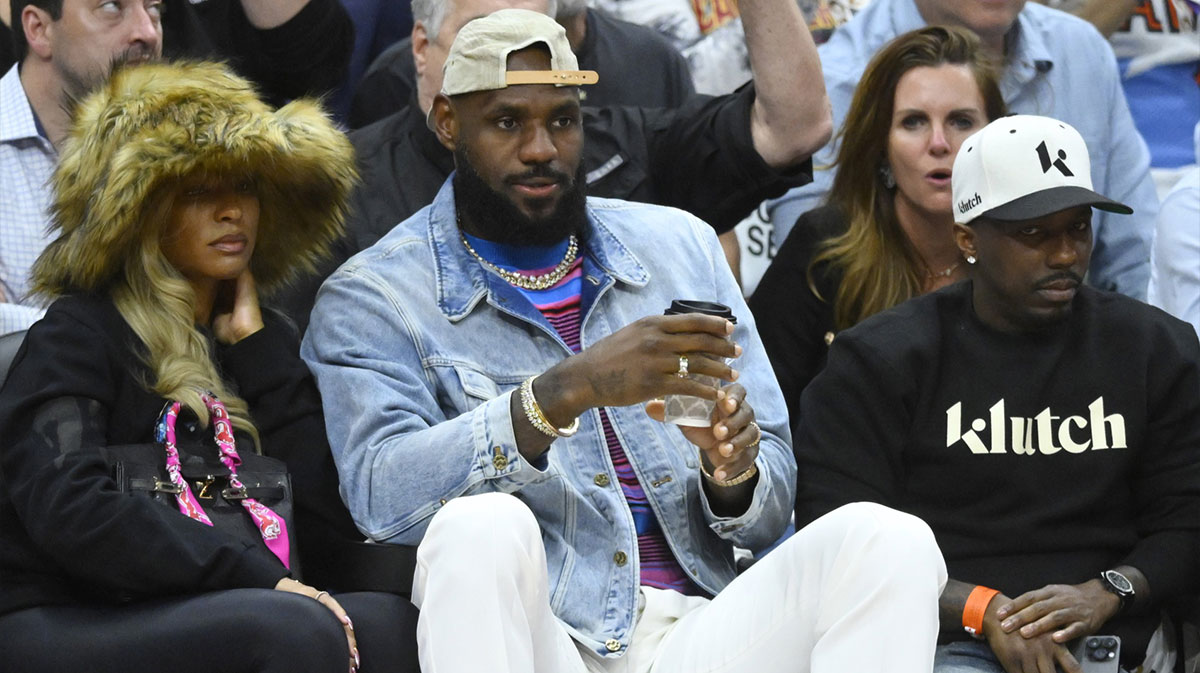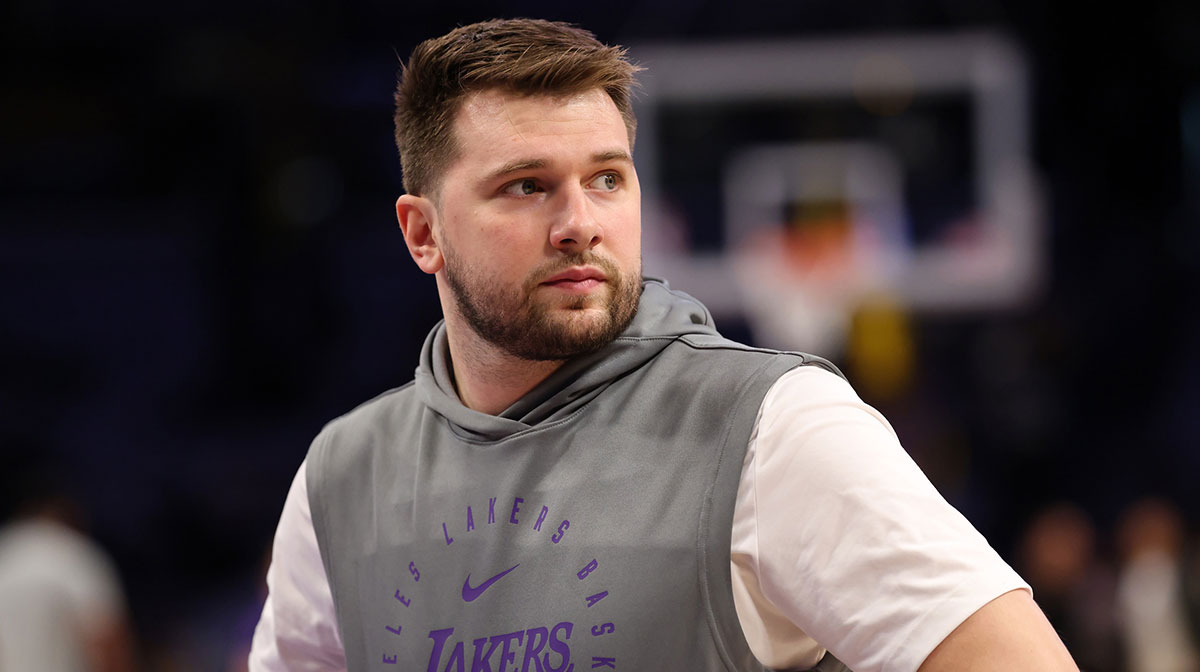If Kyrie Irving is unable to strike a new deal with the Brooklyn Nets, the Los Angeles Lakers may ponder reuniting him with LeBron James. Get your Ruffles ready.
Presumably — and it's foolish to presume anything related to Kyrie — Uncle Drew would like either a fresh five-year max contract or an extension that begins after next season. If Kyrie and the Nets hit an incurable impasse, Irving could forego his option and score in free agency.
— Chief Hélà 🤞🏾 (@KyrieIrving) June 20, 2022
As The Athletic's Shams Charania laid out, the Lakers have one realistic path to acquiring Kyrie: He picks up his ~$37 million player option for 2022-23, and Rob Pelinka orchestrates a blockbuster. Brooklyn can try to talk Irving into a sign-and-trade, but that would hard-cap the Lakers, meaning they would have to fill out the roster with minimum contracts.
If Irving picks up his option, the Lakers could send out $29-45 million in 2022-23 salary to make a trade work, per CBA rules. (FWIW, some folks within the Lakers organization supported a play for Irving at the trade deadline. Pelinka and Sean Marks met at the Draft Combine.)
Let's examine the pros and cons of bringing the talented yet unpredictable All-Star to Los Angeles.
https://open.spotify.com/episode/4bZVYxusLFA542EmWlcgOm?si=690ace7c9e034891
Why the Lakers should not trade for Kyrie
1) Long-term deal
In the best-case scenario, the Lakers would convince Irving (you know, a famously persuasive guy) to play out 2022-23 on his option. If both sides enjoy the partnership, they can negotiate an extension next summer. That mitigates the risk of acquiring a player with Irving's track record of missing work due to health and personal reasons, while Kyrie could bet on himself and potentially earn a massive bag at age 31.
But that's not how these scenarios tend to go down. Irving's option gives him leverage. If he hears the Lakers are unwilling to extend him ASAP, he could hit the market. (Then again, Irving isn't like other stars. That's kinda his whole thing.)
In this exceptional case, the Lakers would be unwise to commit to Irving — even in a star-empowered landscape and with his prior success alongside LeBron. On the other hand, the Lakers surrendering a first-round pick and Talen Horton-Tucker (they don't care about Russ as an asset) without assuring Irving sticks around would be a tough pill to swallow. The Lakers will have to determine exactly how tough.
Irving has missed nearly one-third of his games since arriving at Duke. He's eclipsed 70 games in three of his 11 NBA seasons, and he's played just 103 games since signing a four-year, $136 million contract with Brooklyn three years ago.
Durability issues and injuries have plagued the Lakers since 2020. Banking on arguably the least-reliable and mercurial player in basketball doesn't compute as a solution.
2) Commitment to winning/doing his job
The Lakers are intent on contending while LeBron remains on the payroll. Irving, for all his marvelous skill, has displayed an utter disinterest in prioritizing winning. He requested a trade from the Cleveland Cavaliers before their 2018 playoff run. He sabotaged the Boston Celtics in the 2019 playoffs. He took an extended absence from the Nets right after the 2021 season began. His unwillingness to change his mind on getting vaccinated — unlike, say, Finals hero Andrew Wiggins — wasted a season of the Nets' championship window. (The Lakers, meanwhile, required their players to get vaxxed before the 2021-22 season. They could change their tune, but I wouldn't expect Irving to do so.)
Would LeBron's presence and a change of scenerey suddenly turn Kyrie into a selfless, sacrificial team player? In the words of Hollywood legend William Goldman: “Nobody knows anything.”
3) Behind-the-scenes dysfunction
The Lakers just wrapped a season that was partially bedeviled by internal tension. Russell Westbrook never respected Frank Vogel nor his coaching staff, pushing back on the first day and in film sessions throughout the year. He questioned whether LeBron and AD genuinely made an effort to “let Russ be Russ.” His midseason crunch-time benchings only exacerbated the situation.
Beyond the aforementioned issues, Irving hasn't exactly been the ideal colleague. His comments about managing the franchise were tone-deaf. On Monday, Stephen A. Smith revealed Irving held his own practices — a slap in the face to Steve Nash.
It's possible Darvin Ham would earn Kyrie's respect and has the gravitas to shut down any egotistic behavior. But Nash is a Hall of Famer who Irving initially endorsed.
Regardless of how the offseason plays out, the Lakers are going to field a veteran squad and questionable roster in 2022-23. Their margin of error will be extremely thin amid a deep Western Conference. If they want a smooth-sailing ship with a true championship-or-bust mentality, is Kyrie the best guy to bring on board?
After all, if his performance for the past three years hasn't convinced the Nets to commit to him, despite his talent — should the Lakers feel so confident?
Why the Lakers should trade for Kyrie
1) If he takes the short team deal, they can get off Russ
If the Lakers are able to convince Irving to play next season on his player option — again, unlikely — acquiring Irving becomes far more appealing. For one, the risk that comes with his unreliability is dramatically mitigated. If it doesn't work out, they can trade him before the deadline or move on after the season and clear the money.
Relatedly, the Lakers are still looking to offload Westbrook and his $47 million expiring deal (though they are open to bringing him back). For financial reasons, Westbrook would have to be included in any Kyrie trade, whether Russ winds up in Brooklyn or elsewhere. The Lakers swapping an expiring contract for a risky dude attached to long-term money doesn't make a whole lot of business sense, but an expiring for an expiring? #Whynot.
Lakers: “We ain’t got enough pieces to trade for Kyrie!”
LeBron: pic.twitter.com/sGbizl3dg7
— Josiah Johnson (@KingJosiah54) June 20, 2022
One potential framework for a deal: Westbrook, Talen Horton-Tucker, a 2027 first-round pick, and second-rounders to Brooklyn for Irving and Joe Harris. Or, Westbrook goes to a third team (i.e. Hornets, Knicks, Pacers), decent supporting pieces go to Brooklyn, and the Lakers end up with Irving.
2) He and LeBron seem to be all good now
Kyrie and LeBron reached four straight NBA Finals from 2015 to 2019 and won an NBA title. But their relationship was somewhat fractured by Irving's trade request out of Cleveland, even if LeBron has always publicly backed Kyrie.
On @RoadTrippinPod — LeBron said he was “hurt a little bit” by Kyrie Irving’s recent comments. LeBron also said he wanted Kyrie to be league MVP but they never “aligned.” It’s too bad the Lakers don’t play the Nets until Feb. 18 pic.twitter.com/JlY7B4sjV9
— Stefan Bondy (@SbondyNBA) December 8, 2020
Time heals all wounds. Irving and LeBron have mutually and repeatedly shown love to one another in recent years. Clearly, they fit next to each other on the basketball court and respect each other's game. The idea of running it back together could energize both stars. In 2019, LeBron held out hope that the Lakers could land Irving in free agency.
Kobe, KD or Kyrie
— LeBron James (@KingJames) May 17, 2022
Ky stop it man!!! Actually don’t 🤣🤣🤣🤣🤣🤣🤣🤣🤣🤣🤣
— LeBron James (@KingJames) March 16, 2022
3) He's good
Oh, yeah: Kyrie is pretty awesome at basketball — when he participates.
Ham wants to run a 4-out system. As a near-40% career three-point shooter, Irving would undoubtedly provide spacing and elite perimeter shooting around LeBron and/or AD — unlike Russ. When lineups are staggered, the Lakers can warp their system to space around Irving's penetration. He's a far more adept and in-his-prime playmaker than Westbrook, and he can legitimately ease the scoring burden and usage load off LeBron and AD as the Lakers hoped Russ could.
Irving doesn't offer much on the defensive end, but he's shown that he can be a part of quality defenses, particularly in the postseason. For all of Kyrie's flaws, he's simply a better basketball player than Russ and a more seamless fit around LeBron and AD.
More importantly, a trade simultaneously reuniting LeBron with Kyrie and Westbrook with Kevin Durant would be, well, objectively hilarious.

